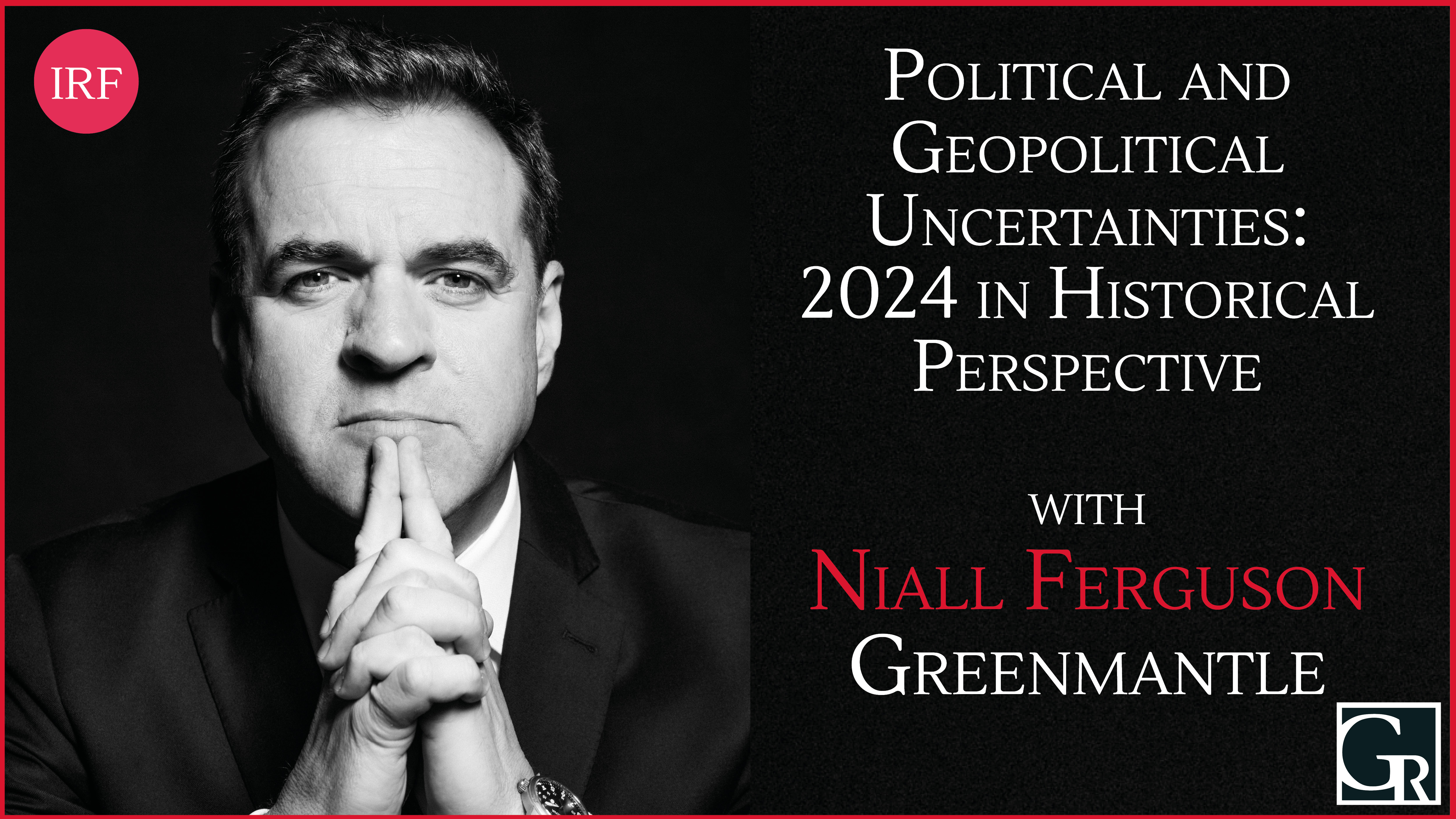Political and Geopolitical Uncertainties: 2024 in Historical Perspective
Greenmantle
Wed 11 Sep 2024 - 15:00 BST
Summary
Niall Ferguson argues that we are now in a second Cold War, specifically between the U.S. and China. He draws on conversations with Henry Kissinger, who initially said in 2019 that we were in the "foothills" of a new cold war and later predicted it would be even more dangerous than the first. Ferguson identifies several similarities between Cold War I (between the U.S. and the Soviet Union) and the current U.S.-China rivalry: it is ideological, technological, economic, and geopolitical. However, he stresses that people tend to underestimate the ideological aspect, particularly Xi Jinping's worldview.
One key difference is the significant economic interdependence between the U.S. and China, which did not exist between the U.S. and the Soviet Union. Ferguson explains how this interdependence, which he described in his 2007 concept of "Chimerica," has created asymmetrical benefits, favoring China over the U.S., and how this imbalance has fueled tensions.
China's economic challenge is much greater than that posed by the Soviet Union, with China’s economy surpassing the U.S. on a purchasing power parity (PPP) basis in 2014. Additionally, China's manufacturing capabilities have dramatically overtaken the U.S. in recent decades, making it a more formidable economic and technological rival. Anti-China sentiment has surged globally, particularly in Western countries, partly due to COVID-19 and China's "wolf warrior" diplomacy.
Ferguson compares the war in Ukraine to the Korean War of Cold War I, viewing it as the first "hot war" of Cold War II. He also discusses the growing geopolitical alignment of authoritarian states like China, Russia, Iran, and North Korea. This coalition, he argues, is not united by ideology but by shared grievances and opposition to the U.S.
Ferguson concludes that while the U.S. faces significant fiscal challenges, China’s problems, including demographic decline and economic vulnerabilities, may be more severe. Despite this, he warns of a potential future crisis over Taiwan, where U.S.-China tensions could lead to a confrontation that the U.S. may not be fully prepared for.
Topics
The state of Cold War II in 2024
Axis of Evil: what it stands to gain and where it is headed
The U.S. Election and its implications
Europe's outlook in the face of war and stagnation
A.I's place in geopolitical uncertainty
